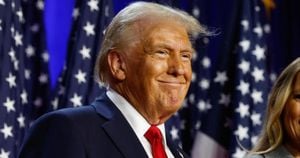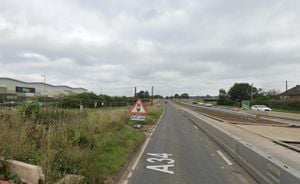On November 5, 2024, a significant court ruling shook the political and social fabric of Nigeria as the government dropped multiple serious charges against 119 protesters formerly accused of treason and inciting violence during anti-government demonstrations held back in August. This ruling was met with considerable relief from families and advocates who had been advocating for the rights and freedom of these individuals.
The case primarily stemmed from widespread protests against the rising cost of living, which saw clashes between security forces and demonstrators, resulting in at least 22 recorded fatalities, as reported by Amnesty International. The events of August unleashed waves of discontent among citizens, many of whom decried the severe economic conditions affecting their daily lives.
Among those released were several minors, who had become the focal point of the protests. Their involvement and subsequent arrests raised questions about the treatment of young people within the justice system. President Bola Tinubu had earlier intervened on Monday, ordering the immediate release of all minors detained during the protests, commanding police to expedite their cases. This directive called attention to the troubling reports surrounding the minors, who were believed to have been arrested for merely participating, or sometimes even merely being present, during the protests.
"The case has been struck out, and the 119 protesters have been released," said Deji Adeyanju, the attorney representing them. He emphasized the need for rehabilitation and compensation from the state governments involved for the ordeal these individuals faced.
The protesters were initially charged with serious offenses, including treason and charges carrying the death penalty. This development marked what many are hoping will be the beginning of reconciling the relationship between the government and its citizens. Such treason allegations had previously sparked outrage and concern from various human rights organizations.
The police had orchestrated mass arrests during and after the protests, detaining over 1,000 individuals nationwide. Many of those apprehended faced life-threatening charges linked to their participation. This move by the government now raises questions about accountability and the treatment of dissenters.
Legal representatives and civil rights organizations have criticized the government's handling of the situation, particularly concerning minors. Some minors collapsed during court appearances, illuminating the dire conditions under which they were held. Videos circulated on social media depicted several youths either fainting or appearing physically weakened during court proceedings, drawing condemnation from both civil society groups and public figures.
Family members of some detainees described their loved ones' arrests as unfounded, asserting their innocence amid the chaos surrounding the protests. Ado Abdullahi, whose sons were imprisoned, expressed frustration, insisting his sons were only running errands at the time of their detention.
Isa Sanusi, director of Amnesty International Nigeria, condemned the government's actions, labeling the treatment of the protesters as cruel. "These children appeared visibly malnourished and starved," he stated, with several minors collapsing in court underscoring the poor mental and physical health conditions of those held.
The Nigerian government has faced growing pressures, both from within and outside the country, as citizens continue to demand accountability and reform. Advocates have called for the release of more individuals wrongfully detained, arguing for government focus to shift from criminalizing protestors to addressing the underlying economic issues prompting such public demonstrations.
No charges remain against the released individuals, highlighting a pivotal change within the legal system concerning how protests against the government will be administered. Still, human rights groups are urging caution, stressing the seriousness of contenting with past injustices and the need to prevent resurgence of similar abuses.
Sanusi insisted on the rehabilitation of the freed minors and their proper support moving forward. Legal representatives emphasized the important role of the judiciary as more cases linked with the protests come to court. Observers remain hopeful but wary of whether this ruling will lead to lasting changes within the broader political makeup of the country.
This moment signifies not only victory for those freed but also, perhaps, for civil rights within Nigeria as citizens continue to hold power to account through collective action. Discussions surrounding government reform and the rights of protesters will undoubtedly carry on, as the societal call for change continues to resonate through the Nigerian populace.
It remains to be seen how the government will respond moving forward, particularly concerning policies under President Tinubu, who is now tasked with addressing the unmet needs of millions facing exacerbated economic challenges. The memory of protests against poor governance will linger, serving as a reminder of the fragile balance between authority and the voice of the people.



